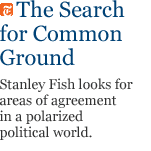SAN FRANCISCO (AP) -- Milton Friedman, the Nobel Prize-winning economist who advocated an unfettered free market and had the ear of three U.S. presidents, died Thursday at age 94.

Milton Friedman in 1977.
Friedman died in San Francisco, said Robert Fanger, a spokesman for the Milton and Rose D. Friedman Foundation in Indianapolis. He did not know the cause of death.
"Milton's passion for freedom and liberty has influenced more lives than he ever could possibly know," said Gordon St. Angelo, the foundation's president and CEO, said in a statement. "His writings and ideas have transformed the minds of U.S. presidents, world leaders, entrepreneurs and freshmen economic majors alike."
In more than a dozen books and a column in Newsweek magazine, Friedman championed individual freedom in economics and politics.
His theory of monetarism, adopted in part by the Nixon, Ford and Reagan administrations, opposed the traditional Keynesian economics that had dominated U.S. policy since the New Deal. He was a member of Reagan's Economic Policy Advisory Board.
His work in consumption analysis, monetary history and stabilization policy earned him the Nobel in economics in 1976.
"He has used a brilliant mind to advance a moral vision -- the vision of a society where men and women are free, free to choose, but where government is not as free to override their decisions," President Bush said in 2002. "That vision has changed America, and it is changing the world."
Friedman favored a policy of steady, moderate growth in the money supply, opposed wage and price controls and criticized the Federal Reserve when it tried to fine-tune the economy.
A believer in the principles of 18th century economist Adam Smith, he consistently argued that individual freedom should rule economic policy. Outspoken and controversial, Friedman saw his theories attacked by many traditional economists such as Harvard's John Kenneth Galbraith.
In an essay titled "Is Capitalism Humane?" he said that "a set of social institutions that stresses individual responsibility, that treats the individual...as responsible for and to himself, will lead to a higher and more desirable moral climate."
Friedman acknowledged that "pure capitalism" did not exist, but said that nations that cherished freedom must strive to keep the economy as close to the ideal as possible.
He said government should allow the free market to operate to solve inflation and other economic problems. But he also urged adoption of a "negative income tax" in which people who earn less than a certain amount would get money from the government.
He lived to see free market reforms spread in the former communist world and Latin America, but played down his own influence.
"I hope what I wrote contributed to that, but it was not the moving force," Friedman told The New York Sun in March 2006. "People like myself, what we did was keep these ideas open until the time came when they could be accepted."
Outspoken and controversial, Friedman saw his theories attacked by many traditional economists such as Harvard's John Kenneth Galbraith.
Born in New York City on July 31, 1912, Friedman began developing his economic theories during the Great Depression when President Franklin D. Roosevelt's based his New Deal on the ideas of Britain's John Maynard Keynes, the most influential economist of the time.
Keynes argued that the government should intervene in economic affairs to avoid depressions by increasing spending and controlling interest rates.
Friedman graduated from Rutgers University in 1932 and earned his master's degree the following year at the University of Chicago.
After working for the National Resources Commission in Washington from 1935 to 1937, Friedman was a member of the staff of the National Bureau of Economics Research in New York from 1937 to 1945 and received his doctorate from Columbia University in 1946.
After World War II, he taught at the University of Minnesota, then returned to the University of Chicago. He became a senior fellow at the Hoover Institution at Stanford University in 1977.
Friedman married Rose Director in 1938. They had two children, Janet and David, and she was co-author of some of his books.
Among his most famous books were: "Price Theory," 1962 (with Rose Friedman); "Capitalism and Freedom," 1962 (with Anna J. Schwartz); "An Economist's Protest," 1972; "There Is No Such Thing As a Free Lunch," 1975; "Price Theory," 1976; and "Free to Choose," 1979, co-authored with his wife. "Free to Choose" also was a series on the Public Broadcasting Service.
Friedman wrote columns for Newsweek from 1966 to 1983 and was one of the few economists to bridge the gap between academia and the public. He involved himself in political campaigns, supporting Barry Goldwater in 1964 and Richard Nixon in 1968. He served on Nixon's commission for an All-Volunteer Army in 1969 and 1970.
In an interview with Playboy magazine in 1973, later republished in a collection of his essays titled "Bright Promises, Dismal Performance," Friedman said he was encouraged by an apparent trend away from government control.
"There are faint stirrings and hopeful signs," he said. "Even some of the intellectuals who were most strongly drawn to the New Deal in the '30s are rethinking their positions, dabbling just a little with free-market principles. They're moving slowly and taking each step as though they were exploring a virgin continent. But it's not dangerous. Some of us have lived here quite comfortably all along."
Friedman, whose wit made him a popular guest on radio and television shows, appeared to enjoy sparring with other economists.
In the Playboy interview, he referred to his disagreement with Galbraith, who endorsed wage and price controls. When Nixon went against Friedman's advice and reluctantly imposed the controls in an effort to slow inflation, Friedman said he wrote a note to Galbraith.
"You must be as chagrined as I am to have Nixon for your disciple," Friedman wrote. Galbraith didn't reply, Friedman said.
















